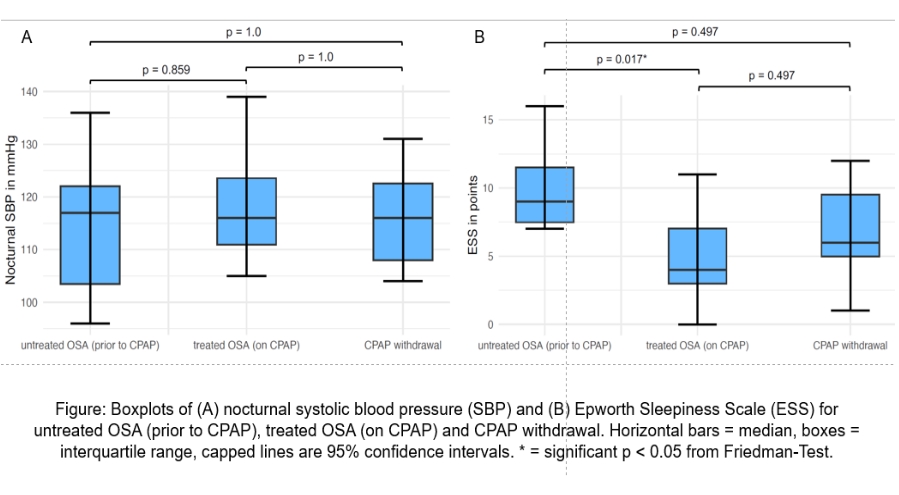Abstract
Background: The CPAP withdrawal model was developed to study obstructive sleep apnea (OSA), but it is unclear whether the consequences of short-term CPAP withdrawal can be compared with untreated OSA.
Objectives: To compare the effects of 2-week CPAP withdrawal and several weeks of CPAP treatment on systolic blood pressure (SBP) and sleepiness.
Methods: In a two-phase intervention study, the effect of 8 weeks of CPAP treatment (phase 1) on nocturnal SBP and Epworth Sleepiness Scale (ESS) was compared with the reverse effect of 2-week CPAP withdrawal (phase 2) in moderate-to-severe OSA. Friedman's repeated measures test was used.
Results: CPAP significantly reduced AHI from 28.5 (24.4-44.2) to 4.2 (1.3- 7.5)/h, and withdrawal resulted in return of OSA (AHI 40.5 (23.3-51.0)/h in 11 adult patients with OSA. There was no significant difference in nocturnal SBP before CPAP, under CPAP, and with CPAP withdrawal (p=0.53). CPAP decreased sleepiness, while CPAP discontinuation increased sleepiness, and there was no significant difference in ESS between untreated OSA and during CPAP withdrawal (Figure).
Conclusions: CPAP reduced the symptoms and AHI that recurred after withdrawal. In this small sample to date, the initially normal nocturnal SBP was not affected by CPAP or its discontinuation, so we cannot yet draw conclusions about the validity of the withdrawal model for this outcome.